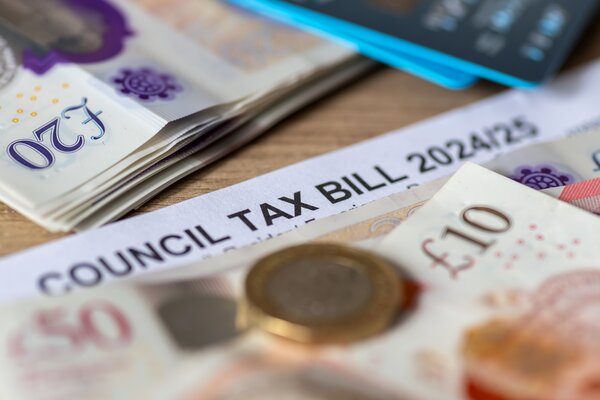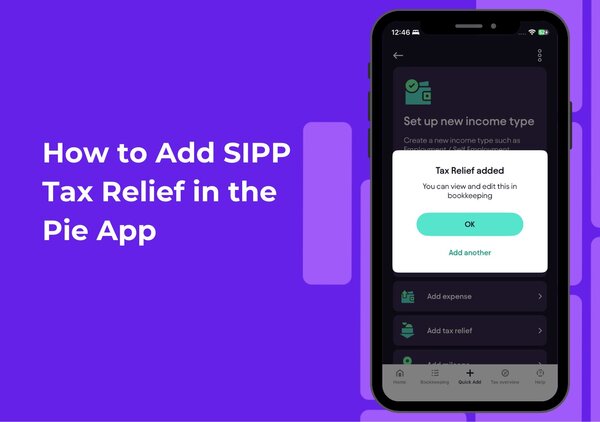What you need to know
Remote work has changed how millions of us earn our living.
Your kitchen table might be your new office. Your bedroom could double as a meeting room.
But what does this mean for your taxes?
The good news is you might be able to claim back some money. This opens up the opportunity for tax savings and benefits. The rules aren’t as scary as they first appear.
In this article, we’ll cover everything you need to know about working from home and tax. By reading on, you'll gain access to valuable information and sources to help you navigate your tax situation.
Introduction to Tax Relief for Home Workers
As home working becomes a regular part of life for many individuals across the UK, understanding tax relief is more important than ever. Whether you’re working full-time from your home office, splitting your week between home and the company office, or embracing a hybrid model, knowing how to claim tax relief can make a real difference to your finances.
Tax relief for home workers is designed to help cover the extra costs that come with working from home, such as increased utility bills, internet charges, and equipment expenses. Employers may offer guidance on what you can claim, but it’s up to you to make sure you’re making the most of the available support. With more people choosing flexible and part time working arrangements, it’s essential to stay informed about your options. By understanding the rules around home working tax relief, you can ensure you’re not missing out on valuable savings, no matter how or where you work.

Eligibility and Requirements
To qualify for tax relief on your home working expenses, there are a few key requirements you’ll need to meet. First, your employment contract or employer must require you to work from home for a significant part of your working weeknthis could be full-time, part time, or as part of a hybrid arrangement. The work you do at home must be essential to your job, not just for your own convenience.
For example, if you use a dedicated room in your home as an office to carry out your business duties, you may be able to claim a portion of your household expenses, such as rent, council tax, and utilities, as business costs. It’s important to remember that only expenses incurred wholly and exclusively for your work can be claimed. Employers may have their own policies on home working and expense reimbursement, so always check your employment contract or speak to your HR department for specific guidance. Taking the time to understand your eligibility and the process for claiming can help you make the most of the support available.
What Does Working from Home Actually Mean?
HMRC sees working from home differently than you might think. If you're waiting for correspondence, learn more about how long it takes for an HMRC letter to arrive.
It’s not just about occasionally checking emails from your sofa. You need to regularly carry out your job duties from your house.
Your employer might require you to work remotely. Or you might choose to do it yourself.
Either way, your home becomes an official place of work. This opens up some tax opportunities.
The arrangement needs to be regular and ongoing. A few days here and there won’t count.
You’ll need to show that working from home is a normal part of your role and job responsibilities.

Can You Actually Claim Money Back for Working from Home?
Yes, you can claim tax relief on extra household costs.
HMRC knows that working from home increases your bills. They provide support to help you get some money back.
You have two main options for claiming.
The first is a flat rate of £6 per week. That works out to £312 each year.
You don’t need any receipts or calculations for this. It’s simple and straightforward.
The second option is claiming your actual extra costs. This might give you more money back if your bills have really gone up.
What Extra Costs Can You Claim Back?
The list of extra costs you can claim includes heating bills, which probably went up when you started working from home.
It also includes increased electricity costs, since computers, monitors, and lights all use power.
Phone bills can qualify if you make work calls from your personal line. Internet costs might count if you upgraded your package for work. Office supplies like paper, ink, and pens are fair game.
Equipment repairs that relate to work activities can be claimed. Remember, you can only claim the extra costs. Not the bills you’d have anyway.

How Do You Work Out What You Can Claim?
The flat rate method is dead simple. Just claim £6 per week and you’re done. If you're looking for more straightforward approaches, check out these 9 simple ways to pay your Self Assessment tax!
For actual costs, you need to do some maths. Work out what percentage of your home you use for work. Compare your bills from before and after you started working from home.
Keep detailed records of everything work-related you buy, making sure to note all relevant details for your expenses. Think about how many hours you work from home versus total household usage.
If the numbers get complicated, consider getting help from a tax professional.
What About Office Furniture and Equipment?
Your employer can give you up to £1,000 of equipment each year tax-free. If you buy your own work equipment, you can claim tax relief on it. A proper desk bought specifically for work could qualify.
An expensive office chair might be worth claiming for. Always check if your employer offers equipment first. Many companies have schemes that give employees access to equipment or support. Keep your receipts safe. You’ll need proof that items are mainly for work use.
Tax Implications for Part Time and Flexible Workers
If you work part time, have a flexible schedule, or are on a hybrid contract, you can still benefit from tax relief on your home working expenses. The key is to keep detailed records of the hours and days you work from home, as your tax relief will be based on the proportion of your working time spent at home. The UK offers a simplified expenses scheme, which allows you to claim a flat rate for each hour you work from home, making it easier to manage your claims without needing to calculate every individual expense. This is especially helpful for individuals who work irregular hours or find it difficult to separate personal and business costs.
By using this scheme, you can receive the support you’re entitled to, helping you manage your business expenses, improve your work-life balance, and make the most of your flexible working arrangement. Remember to keep a log of your working patterns and check the current rates to ensure you’re claiming the right amount. With the right approach, part time and flexible workers can find it easier to manage their finances and continue delivering great results, wherever they work.

Getting the Most from Your Home Working Tax Position
Working from home opens up genuine opportunities to save on tax. The key is understanding what you can legitimately claim and keeping proper records. Start with the simple £6 weekly allowance if your situation is straightforward. For more complex arrangements, actual cost claims might save you more money. To maximize your benefits, develop effective record-keeping habits and tax-saving strategies tailored to your work-from-home setup.
Pie is the UK’s first personal tax app, built specifically for working individuals who want to tackle their tax responsibilities head-on. Unlike other solutions, Pie combines bookkeeping, real-time tax calculations, simple tax return filing, and expert guidance all in one place.
Ready to make the most of your working from home tax situation? Let Pie help you navigate the rules and claim everything you’re entitled to.











